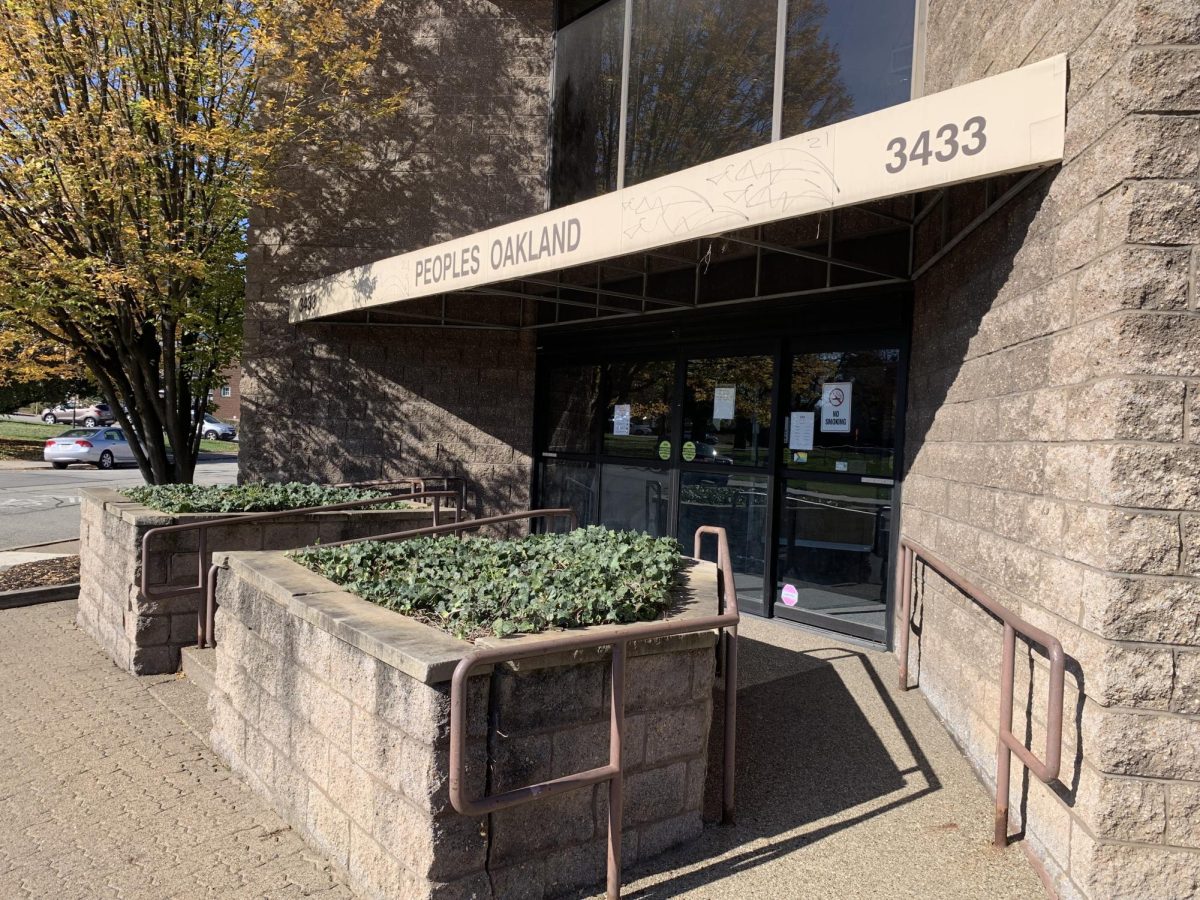JJ Walker frequents Peoples Oakland for its mediation rooms and recovery groups, but to him, the little-known nonprofit at the corner of Bates and Zulema streets is more than a hub for social services.
“The outside can be very cruel,” Walker said. “Peoples Oakland is l-o-v-e.”
Nearly seven years ago, Walker realized he needed counseling “big time,” and turned to Peoples Oakland for psychiatric and social rehabilitation.
Alongside counseling, members can access mental illness and substance abuse support groups, a fitness center, recreational activities, employment assistance and more, free of charge and as they please.
“It’s our members’ own space because it’s driven by them,” Peoples Oakland Executive Director Lezetta Cox said.
Members arrive through self-referral, psychiatric hospitals or other social service agencies, and must live in Allegheny County. Around a quarter of members live in Oakland, but some come from as far as Clairton.
Established in 1974, Peoples Oakland helped fill a crucial gap as America deinstitutionalized mental health care. Almost 50 years later, what began as a safe space for former state hospital patients provides wraparound services to 160 members.
Many more people with unmet needs remain on a waitlist, a consequence of the harsh fiscal reality of nonprofit work. For more than two decades, Peoples Oakland has relied on state block grant funding, which is allocated through the Allegheny County Department of Human Services Office of Behavioral Health.
Over the last decade, both the state’s allocation to the county and the amount received by Peoples Oakland has declined. According to Cox, the Human Services Block Grant accounts for roughly 65% of the nonprofit’s $800,000 operating budget, down from 90% five years ago.
Peoples Oakland is also funded through philanthropic foundations and fundraising events sponsored by local institutions, such as Pitt and UPMC. Its marquee fundraiser is the Mental Health Recovery Gala Benefit, held each October in Schenley Plaza.
But donations won’t pay the bills if block grant funding continues to dwindle.
“We are looking to constantly raise money, because if our funds continue to be cut from the county at the level that it has been over the years, that puts us at risk,” Cox said.
According to Cox, Peoples Oakland may add billable services separate from existing ones to supplement its revenue.
“Because we’ve been around so long, I don’t think that we are in a position where we’re worried about our doors being closed, but with any nonprofit, to sustain the agency and the future, we are looking at other ways to diversify our funding streams,” Cox said.
Some initiatives are funded through non-governmental grants, such as Bridging the Gap. Run by Peoples Oakland Associate Director Allison Haley, the program connects with individuals held in the Allegheny County Jail and encourages their utilization of mental health services upon release.
“We increase their likelihood that they’re going to be exposed to mental health treatment, be curious about mental health treatment … and get the treatment they need that they’re not getting that’s leading them into the jail in the first place,” Haley said.
All of these programs can be a lot for a professional staff of eight to manage. Some members, such as April Hamlin, take paid positions at Peoples Oakland. Hamlin has worked as a receptionist and administrative assistant for three years — the longest she’s held a job.
To fill in the rest of the gaps, unpaid interns from nearby universities — mainly Pitt, Carlow and Duquesne — prove willing to step up year after year.
“The one thing that interns got to do is play pool,” member Julia Valles said, cue in hand as she played against intern Ana Depres.
Depres, a junior psychology and gender, sexuality and women’s studies major at Pitt, works at Peoples Oakland two days a week. Not only has she bonded with members, but she’s learned more about mental illness, which she struggles with herself.
“It’s invisible, and this place has taught me to get to know people, because people are a lot more like you than you realize,” Depres said.
Peoples Oakland educates others through its panels program, where members speak on their experiences with mental illness and the types of support they prefer to classrooms of future health care providers, most recently at Pitt. The panels, plus community events held in conjunction with Oakland Planning and Development Corporation, are part of the nonprofit’s efforts to become less of an “island,” as Cox put it.
Members and social service workers who have found Peoples Oakland tend to give it high praise.
Jason Harland spent 15 years as a member of a similar agency, but grew disillusioned over its “bigoted, evangelical attitude.” Harland still meets with his longtime counselor at this other center, but has thrown himself into Peoples Oakland’s programming since joining in June, leading arts and crafts classes and decorating common areas.
Harland is among the many members who enjoy the flexibility of Peoples Oakland, which allows members to participate as much or as little as they’d like — he said he gravitates towards the “much end.”
“This is kind of a gold standard of programs like this,” Harland said.
A previous version of this story misrepresented the Bridging the Gap program. The article has been updated. The Pitt News regrets this error.


